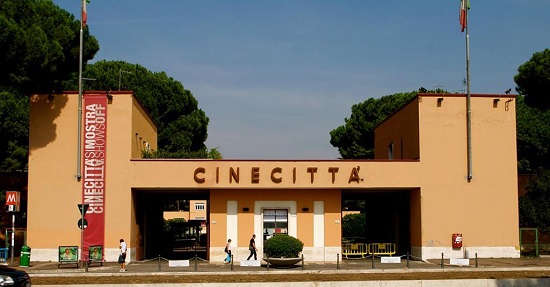Tax Credits for Cinema: like a Ferrari absent Test Circuits
TORONTO – The biggest networking event in the film industry, the American Film Market (AFM), was hosted in Las Vegas last week. Every year in November approximately 7,000 attendees attend an eight-day event, which brings filmmakers together with acquisition and development teams from all corners of the globe. Producers and filmmakers alike showcase their projects to would-be financiers in hopes of getting green lit or licensed. In fact, the event boasts $1 billion in distribution and film financing each year – for projects at all stages of development.
Commenting on the event, Marco Valerio Pugini, the President of the Association of Executive Producers (APE), weighed in on the Italian perspective and presence at the AFM: “It’s a good opportunity to remind our colleagues that Italy has always been, and still is, a key player in our industry. Still, we want to improve even further. We are a player that, sure, has a long history of culture, fashion and style, as well as nice weather, good food and beautiful locations. But we also have infrastructure, thanks to Cinecittà Studios, a great system of incentives and fantastic crews.”
Pugini was keen to highlight the 40% tax credit available to non-Italian productions which he feels “definitively makes a difference” when pitching international productions to stage their projects on the Peninsula. The AFM held a panel at the event – “Focus on Italy showcase” – which was organized by DGCA-MiC, Cinecittà, APE and ITA [Italian Trade Agency] that explained why “Filming in Italy Is Now More Convenient Than Ever”. As per a 2023 DGCA-MiC report that was presented during the showcase, 402 films were produced in Italy last year, marking a 13% increase compared with 2022 and 27% increase compared with 2019. That’s not counting 248 audiovisual products, more than double compared with 2019.
Facts and figures notwithstanding, it was Pugini’s cheeky remark regarding a lack of Sound Studios that grabbed headlines: “If we want to use some product placement, we’ve built a Ferrari with our tax credit system. Now, we need a circuit for it to run”. Pugini continued, “Struggles and excitement walk hand in hand together at this moment. For our industry, it means new stages. We are still missing those, but the good news is that Cinecittà is building them. They will be ready next year”. Therein lies a major deficiency within Italy’s Cinema ecosystem – a lack of infrastructure. The state owned Cinecitta is the country’s only major Film Studio, equipped with a measly 20 sound stages.
“Measly” because by comparison, Toronto has several Film Studios three of which make up for the bulk of Ontario’s studio space. Cinespace Studios is Toronto’s largest facility and provides 29 sound stages. Pinewood Studios, the second largest facility is home to 16 sound stages – and Streaming Giant Netflix, who signed a long-term lease with the Studios in 2019, utilizes 4 of those.
Prior to this year’s AFM, the “Focus on Italy” panel intended to “attract new investments in the country and give this happy moment a continuity”. But it would seem that the Italian Film Industry is suffering the same woes as the country’s premier soccer league – Serie A. The films are once again of high quality, like the soccer being played in Serie A. But the infrastructure with both is decades behind. Filmmakers and producers will always desire Italy’s backdrop and hospitality, but as long other countries are aggressively expanding their spaces Italy’s overreliance on Cinecittà will continue to cost the Industry hundreds of millions of investment dollars.
Massimo Volpe is a filmmaker and freelance writer from Toronto: he writes reviews of Italian films/content on Netflix





